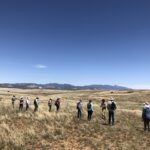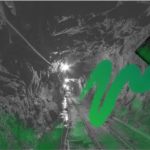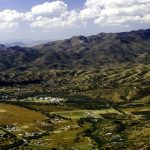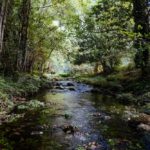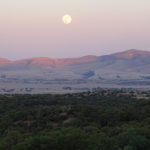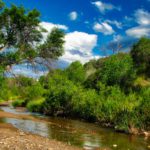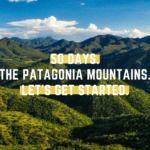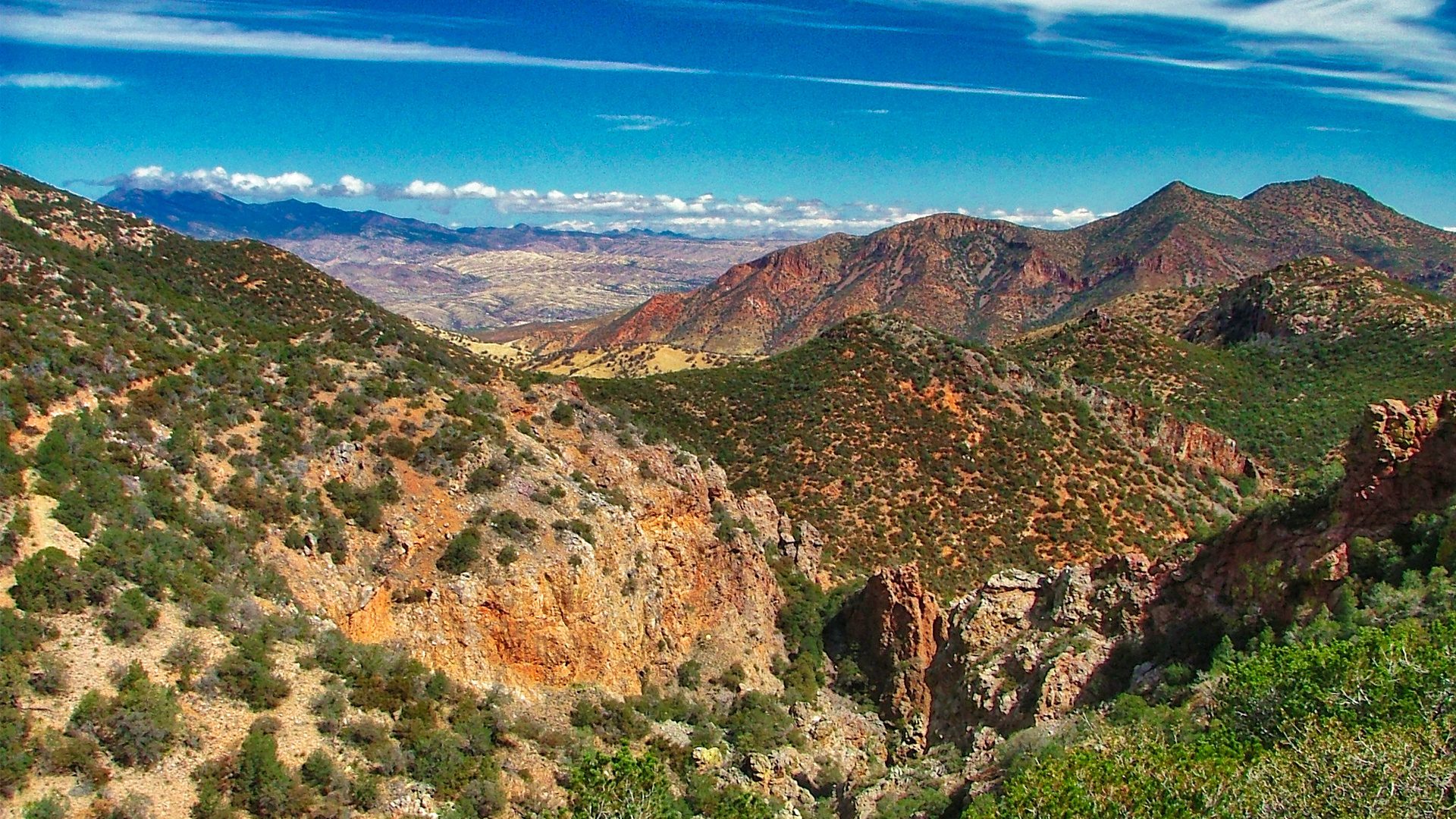
May 5, 2020 | Blog
Today, we’re sharing a story written by our communications coordinator, Anna Sofia. Sofia shadowed PARA as a field volunteer for a few months before coming to work with us and wrote this story as part of her MA in Science Writing thesis at Johns Hopkins University.
You can read the full story here >
Canyon wrens flew overhead as I scaled a rocky wash in Humboldt Canyon, an inner arm of Arizona’s Patagonia Mountains. Over a dozen puddles of water glistened around me, some small as frying pans and others wide as boulders, all connected by streams of icy November rain. I followed the flow along crumbling cliff walls until I reached the source — a chain of plunge pools. The one nearest me was four feet deep.
I paused to assess my options. I had volunteered to check a local nonprofit’s remote wildlife camera in this canyon, and the board warned me of a challenging trip. After a bumpy, two-hour drive to the end of a road, I would need to don a pack and enter the backcountry, hike loose dirt hills, cross rapid streams, and bushwhack through a snare of thorny brush. This, I could do. What I hadn’t been told was that the camera was beyond these pools. To move forward, I’d need to suck it up and wade through them.
I grounded myself with the reminder that, by volunteering in the field, I was part of a growing movement of “citizen scientists:” people who collect data, either on their own or with a coordinated group, to support local conservation efforts. In Arizona, citizen scientists like me satisfy many needs for wildlife organizations. We take photos of animals and plants and either share them directly with nonprofits or upload them to databases like Nature’s Notebook, The Hummingbird Project, and iNaturalist. Citizen scientists are also “watchdogs,” people who report concerning or exciting developments in nature — like acid mine drainage or a rare jaguar sighting — to local nonprofits.
I wanted to help fight hard rock mining in the Patagonia Mountains, say no to America’s border wall, and raise a flag for today’s climate crisis — that’s why I was there. So I stripped from the waist down, hugged my shoes and pants to my chest, and hauled into the water with little more grace than a cow. The sounds that burst from my chest echoed a cow, too, as the region’s recent rains froze my skin and splashed up my thighs.
I climbed out of the pools when the canyon walls widened enough, sun dried until I could redress, and kept hiking. The trees above me — home to a bonded pair of Mexican Spotted Owls — shook their branches in the wind, and a camera sat just beyond a bend where I’d been told I would find it.
Pulling the camera from its box, I sat in the shade of wilted leaves and flipped through the photos. The images on this camera would help nonprofits and their alliances educate legislators and file lawsuits. Just a few years before, a Patagonia-based nonprofit had protected the pair of Mexican Spotted Owls from mining for a second time, all thanks to citizen scientists and the data collected in this canyon.
What else, I wondered, could citizen scientists help accomplish along the U.S.-Mexico border? What other fights could we win for wildlife, if given the chance?
To answer these questions, I shadowed two Arizona locals: Glen Goodwin, a long-term citizen scientist and cofounder of Patagonia Area Resource Alliance (PARA), and Emily Burns, a scientist for Tucson-based nonprofit Sky Island Alliance. Both shared their thoughts on the challenge of collecting data in Arizona, the importance of citizen scientists, and how newcomers can contribute to ongoing conservation efforts.
Read the full story here >
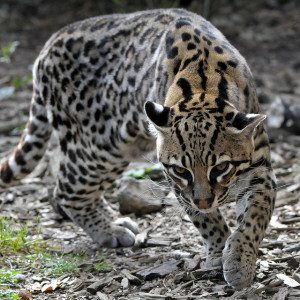
Sep 16, 2015 | Blog
FOR IMMEDIATE RELEASE
Contact: Courtney Sexton, csexton@defenders.org, 202-772-0253
Wendy Russell, wendy@patagoniaalliance.org, 520-477-2308
Federal court flips the off switch on Forest Service’s approval of “Sunnyside” project in Coronado National Forest
Tucson, Ariz. —A district court in Arizona put the brakes on an environmentally destructive exploratory drilling project in the Coronado National Forest near Patagonia, Arizona, saying the Forest Service failed to conduct the appropriate environmental review before fast-tracking the approval of the “Sunnyside” project. In October 2014 conservation groups Defenders of Wildlife and the Patagonia Area Resource Alliance (PARA) filed a lawsuit claiming the Forest Service’s approval violated environmental laws and posed a threat to endangered species in the area.
Statement from Rob Peters, Defenders of Wildlife:

Pictured: Ocelot by Steve Harris
“This is a great victory for the many species of imperiled wildlife that call the Coronado National Forest and the Mountain Empire region home, especially the jaguar, Mexican spotted owl, ocelot and yellow-billed cuckoo, all of which are already at risk from multiple projects in the region.
“The court’s ruling against this destructive mining operation is the best thing that could have happened for the residents of Patagonia and for the incredible and diverse wildlife in the area.”
Statement from Wendy Russell, Patagonia Area Resource Alliance:
“We’re not going to stand by and let the Forest Service rubber-stamp these mining projects in the Patagonia Mountains. There’s too much at stake for both our community and wildlife. This is the second time we’ve had to take them to court, and the second time we’ve won.”
Defenders and PARA were assisted in the case by Roger Flynn, an attorney with the Western Mining Action Project. Flynn noted the importance of local residents’ right to participate in the Forest Service’s review of mineral projects on public land – residents were excluded from this process in the fast-tracking of the approval, a violation of federal law.
Background:
The Canadian mining company Regal Resources’ Sunnyside Project (an exploratory mining operation) involves drilling six exploratory holes for copper deposits up to 6,500 feet deep roughly five miles from the town of Patagonia, Arizona. The Forest Service issued a “categorical exclusion” decision which essentially fast-tracked the mineral drilling exploration and approved the project without involving the public or taking a hard look at the project’s impacts to endangered species. The decision authorized Regal Resources to run its drill rigs for at least five months in sensitive endangered species’ habitat. Loud mineral drilling operations and construction would occur 24 hours a day, seven days a week (using artificial lighting at night) with total project operations and reclamation lasting up to three years.
In January of this year, the Forest Service temporarily withdrew approval for the Sunnyside project until it completed consultation with the U.S. Fish and Wildlife Service to determine whether the project would significantly affect the western yellow-billed cuckoo, which is listed as a federally threatened species. After completing the consultation and concluding that there would be no significant effects, the Forest Service re-issued its approval for drilling to proceed in April, 2015.
###
Defenders of Wildlife is dedicated to the protection of all native animals and plants in their natural communities. With more than 1.2 million members and activists, Defenders of Wildlife is a leading advocate for innovative solutions to safeguard our wildlife heritage for generations to come. For more information, visit www.defenders.org and follow us on Twitter @DefendersNews.
The Patagonia Area Resource Alliance is a citizen watchdog organization that monitors the activities of mining companies, as well as ensures government agencies’ due diligence, to make sure their actions have long-term, sustainable benefits to our public lands, our water, and the town of Patagonia. For more information visit www.patagoniaalliance.org and follow us on Twitter @PARAalliance.
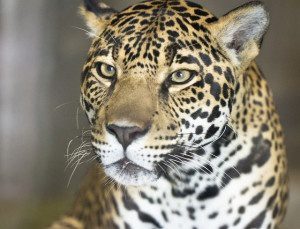
Jan 13, 2015 | Blog
FOR IMMEDIATE RELEASE
Plug Pulled on Proposed “Sunnyside” project in Arizona’s Coronado National Forest
Tucson, Ariz. — Today the U.S. Forest Service temporarily put the brakes on an environmentally hazardous mining project in southern Arizona’s Coronado National Forest that it previously approved in August. The Forest Service’s decision follows a similar move by the U.S. Fish and Wildlife Service, which had originally given the project the green light in August and then withdrew its approval in December. The agency decisions to withdraw their approvals of the Canadian mining company Regal Resources’ “Sunnyside Project” are based on the project’s potential violation of multiple environmental laws.

photo by Nathan Rupert
“The agencies knew from the beginning that this project could have a devastating impact on the local wildlife and habitat in this unique corner of the country,” said Rob Peters of Defenders of Wildlife. “The Coronado is home to an incredible diversity of imperiled species like the jaguar, ocelot and yellow-billed cuckoo, all which are already at risk from multiple projects in the region.”
“No one understood why they approved this project to begin with, but for the sake of Patagonia’s residents and wildlife, we are glad to see that they’ve reconsidered,” added Peters.
In October conservation groups Defenders of Wildlife and the Patagonia Area Resource Alliance filed a lawsuit claiming the federal agencies’ approvals the Sunnyside project violated environmental laws and posed a threat to endangered species and the safety of drinking water for local residents.
“Sunnyside could have been a disaster not only for our region’s unique wildlife, but also for the residents living directly downstream and the municipal watershed of the town of Patagonia,” said Wendy Russell of the Patagonia Area Resource Alliance. “Projects like Sunnyside use and abuse a tremendous amount of the local water supply and create long-term destruction of wildlife habitat. The people and wildlife of our national forests deserve more, and the agencies know that.”
Click to hear from environmental attorneys on why they sue.
###
Contact: Courtney Sexton, csexton@defenders.org, 202-772-0253
Wendy Russell, wendy@patagoniaalliance.org, 520-477-2308
Defenders of Wildlife is dedicated to the protection of all native animals and plants in their natural communities. With more than 1.1 million members and activists, Defenders of Wildlife is a leading advocate for innovative solutions to safeguard our wildlife heritage for generations to come. For more information, visit www.defenders.org and follow us on Twitter @DefendersNews.
The Patagonia Area Resource Alliance is a citizen watchdog organization that monitors the activities of mining companies, as well as ensures government agencies’ due diligence, to make sure their actions have long-term, sustainable benefits to our public lands, our water, and the town of Patagonia. For more information visit www.patagoniaalliance.org and follow us on Twitter @PARAalliance.




